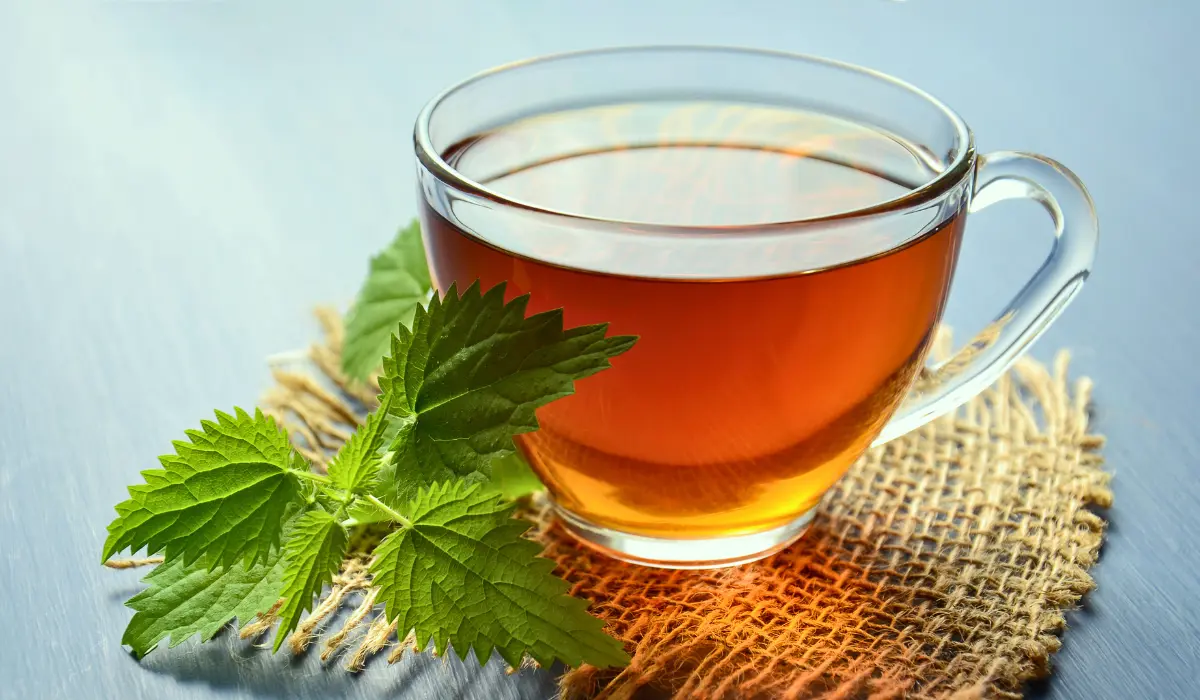There’s nothing quite as miserable as a bout of stomach pain or indigestion. Whether it’s from something you ate, stress, or an underlying condition, that gnawing ache in your abdomen can put a damper on your day. But before you reach for over-the-counter medications, consider trying a more natural remedy: tea. Certain teas have been used for centuries to soothe digestive woes, thanks to their anti-inflammatory and antispasmodic properties. In this article, we’ll explore ten of the best teas for stomach pain, so you can find relief in a warm, comforting cup.
Best Tea For Stomach Pain: 10 Soothing Choices
1. Ginger Tea
Ginger is a time-honored remedy for nausea, vomiting, and general stomach discomfort. This spicy root contains compounds like gingerol and shogaol that can help reduce inflammation in the digestive tract and relax stomach muscles. Ginger tea is easy to make at home by steeping fresh grated ginger or ginger tea bags in hot water. (tea for stomach pain)

2. Peppermint Tea
Peppermint has long been prized for its ability to calm an upset stomach. The menthol in peppermint acts as a natural analgesic, helping to relieve abdominal cramps and bloating. Peppermint tea can also help improve digestion by stimulating bile flow. Just be cautious if you suffer from acid reflux, as peppermint may exacerbate symptoms in some cases.
3. Chamomile Tea
Chamomile is a gentle, caffeine-free herb that’s often used to promote relaxation and ease digestive distress. Its anti-inflammatory properties can help soothe an inflamed stomach lining, while its antispasmodic effects may alleviate cramping and spasms. Chamomile tea has a light, sweet flavor and can be enjoyed hot or iced.
4. Fennel Tea
Fennel has long been used as a digestive aid, thanks to its ability to relieve gas, bloating, and cramping. The seeds contain compounds like anethole and fenchone that can help relax the smooth muscles in the digestive tract. Fennel tea has a licorice-like flavor and can be enjoyed after meals to aid digestion.
5. Licorice Root Tea
Licorice root has been used in traditional medicine for centuries to treat various digestive issues, including stomach pain and ulcers. The compound glycyrrhizin in licorice root has anti-inflammatory and antispasmodic effects that can help calm an upset stomach. However, licorice root should be consumed in moderation, as excessive intake can lead to side effects like high blood pressure.
6. Turmeric Tea
Turmeric, a bright yellow spice commonly used in Indian cuisine, has potent anti-inflammatory properties thanks to its active compound, curcumin. Studies have shown that curcumin can help reduce inflammation in the digestive tract, making turmeric tea a potential remedy for stomach pain and ulcers. (tea that can help settle an upset stomach)
7. Slippery Elm Tea
Slippery elm is an herb that has been used for centuries to treat various digestive issues, including stomach pain, diarrhea, and inflammatory bowel diseases. The inner bark of the slippery elm tree contains mucilage, a substance that coats and soothes the lining of the digestive tract. Slippery elm tea has a slightly sweet, nutty flavor.
8. Marshmallow Root Tea
Like slippery elm, marshmallow root contains mucilage, which can help soothe and protect the lining of the stomach and intestines. Marshmallow root tea has been traditionally used to treat stomach ulcers, acid reflux, and other digestive issues. It has a mild, slightly sweet flavor and can be enjoyed hot or cold.
9. Meadowsweet Tea
Meadowsweet is an herb that contains salicylates, which are compounds similar to aspirin. These compounds can help reduce inflammation and pain in the digestive tract, making meadowsweet tea a potential remedy for stomach aches and cramps.
10. Catnip Tea
While catnip is best known for its ability to drive felines wild, it has also been used in traditional medicine to treat various digestive issues, including stomach pain, gas, and diarrhea. Catnip tea has a mild, slightly minty flavor and may help relax the muscles in the digestive tract, providing relief from cramping and spasms.
Also Read: Pain In The Lower Tummy When Coughing: Common Causes And Treatments
Conclusion
When dealing with stomach pain or indigestion, reaching for a soothing cup of tea can be a simple yet effective way to find relief. From ginger and peppermint to chamomile and licorice root, these teas offer anti-inflammatory and antispasmodic properties that can help calm an upset stomach and ease digestive discomfort. (tea that can help settle an upset stomach)
Of course, it’s always a good idea to consult with a healthcare professional, especially if your stomach pain is severe or persistent. But for minor bouts of discomfort, trying one of these teas may be just what you need to soothe your stomach and find some relief.
Frequently Asked Questions
Yes, certain teas can help relieve gas pain by reducing inflammation and relaxing intestinal muscles. Teas like fennel, ginger, and peppermint are particularly good for gas pain.
To release gas, try gentle abdominal massage, exercises like walking or yoga poses, over-the-counter gas relief products, or drinking teas that contain carminative herbs to help expel gas.
Teas that can help soothe gastritis (stomach lining inflammation) include slippery elm, marshmallow root, meadowsweet, chamomile, and licorice root tea. Their anti-inflammatory properties can help calm irritation.
Ginger, fennel, peppermint, and turmeric teas can aid digestion by reducing inflammation, relaxing digestive muscles, and stimulating bile flow and enzyme production to break down foods better.

